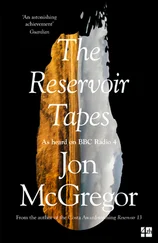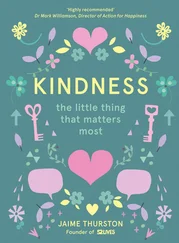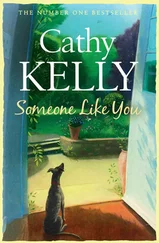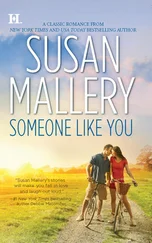Thanks. Great. This was, what, news?
She looked down at the sugar-beet, which was sitting on a heap of glass on the passenger seat beside her. The bits of glass were small and lumpy, like gravel. She noticed more bits of glass on the floor, and the dashboard, and spread across her lap. She noticed that her left arm was scratched, and that she was still holding on to the steering wheel, and that maybe she wasn’t breathing quite as much as she should have been, although that happened whenever she thought about her breathing, it going wrong like that, too deep or too shallow or too quick, although that wasn’t just her though, surely, it was one of those well-known paradoxes, like a Buddhist thing or something. Total mindlessness. Mindfulness. Just breathe.
‘The police are on their way,’ someone else said. She looked up and saw another man, a younger man in a sweatshirt and jeans, holding up a silver phone. ‘I just called the police,’ he said. ‘They’re on their way.’ He seemed pleased to have a phone with him, the way he was holding it, like this was his first one or something. Which there was no way. His jeans had grass-stains on the knees, and his boots were thick with mud.
‘You called them, did you?’ the older man asked. The younger man nodded, and put his phone in his pocket, and looked at her. She sat there, waiting for the two of them to catch up. Like: yes, a sugar-beet had come through the windscreen; no, she wasn’t hurt; yes, this other guy did phone the police. Any further questions? I can email you the notes? The younger man looked through the hole in the windscreen, and at the windscreen itself, and whistled. Actually whistled: this long descending note like the sound-effect of a rock falling towards someone’s head in an old film. What was that?
‘You all right?’ he asked her. ‘You cut or anything? You in shock?’ She shook her head. Not that she knew how she would know she was in shock. She was pretty sure one of the symptoms of being in shock would be not thinking you were in shock. Like with hypothermia, when you take off your clothes and roll around laughing in the snow. She’d read that somewhere. He looked at the sugar-beet and whistled again. ‘I mean,’ he said, and now she didn’t know if he was talking to her or to the other man; ‘that could’ve been fatal, couldn’t it?’ The other man nodded and said something in agreement. They both looked at her again. ‘You could have been killed,’ the younger man said. It was good of him to clarify that for her. She wondered what she was supposed to say. They looked as if they were waiting for her to ask something, to ask for help in some way.
‘Well. Thanks for stopping,’ she said. They could probably go now, really, if they’d called the police. There was no need to wait. She thought she probably wanted them to go now.
‘Oh no, it’s nothing, don’t be daft,’ the older man said.
‘Couldn’t just leave you like that, could we?’ the younger man said. He looked at her arm. ‘You’re bleeding,’ he said. ‘Look.’ He pointed to the scratches on her arm, and she looked down at herself. She could see the blood, but she couldn’t feel anything. There wasn’t much of it. It could be someone else’s, couldn’t it? But there wasn’t anyone else. It must be hers. But she couldn’t feel anything. She looked back at the younger man.
‘It’s fine,’ she said. ‘It’s nothing. Really. Thanks.’
‘No, it might be though,’ he said, ‘it might get infected. You have to be careful with things like that. There’s a first-aid box in the van. Hang on.’ He turned and walked back to the van, a blue Transit with the name and number of a landscape gardening company painted across the back, and a little cartoon gardener with a speech bubble saying no job was too small. The doors were tied shut with a length of orange rope. The number-plate was splattered with mud, but it looked like a K-reg. K450 something, although she wasn’t sure if that was 0 the number or O the letter. The older man turned and smiled at her, while they were waiting, and she supposed that was him trying to be reassuring but to be honest it looked a bit weird. Although he probably couldn’t help it. He probably had some kind of condition. Like a degenerative eye condition, maybe? And then on top of that, which would be painful enough, he had to put up with people like her thinking he looked creepy when he was just trying to be nice. She smiled back; she didn’t want him thinking she’d been thinking all that about him looking creepy or weird.
‘Police will be here in a minute,’ he said. She nodded. ‘Lorry must have been overloaded,’ he said. ‘Driver’s probably none the wiser even now.’
‘No,’ she said, glancing down at the sugar-beet again. ‘I suppose not.’ The younger man came back, waving a green plastic first-aid box at her. He looked just as pleased as when he’d held up the phone. She wondered if he was on some sort of special supported apprenticeship or something, if he was a little bit learning-challenged, and then she thought it was probably discriminatory of her to have even thought that and she tried to get the thought out of her mind. Only you can’t get thoughts out of your mind just by trying; that was another one of those Buddhist things. She should just concentrate on not thinking about her breathing instead, she thought. Just, total mindlessness. Mindfulness. Just breathe.
He passed the first-aid box through the hole in the windscreen. His hands were stained with oil and mud, and as they touched hers they felt heavy and awkward. She put the box in her lap and opened it. She wondered what he wanted her to do. ‘I don’t know,’ he said. ‘I just thought. Has it got antiseptic cream in there?’ She rummaged through the bandages and wipes and creams and scissors. And now what. She took out a wipe, dabbed at her arm, and closed the box. She handed it back to him, holding the bloody wipe in one hand.
‘Thanks,’ she said. ‘I think I’ll be okay now.’ Was she talking too slowly? Patronising him? Or was she making reasonable allowances for his learning-challenges? But he might not even be that. She was over-complicating the situation, probably. Which was another thing Marcus said to her sometimes, that she did that. She looked at him. He shrugged.
‘Well, yeah,’ he said. ‘If you’re sure. I just thought, you know.’
Status update: Emily Wilkinson regrets not having signed up for breakdown insurance.
‘Thanks,’ she said.
She’d chosen Hull because she’d thought it would sound interesting to say she was going to a provincial university. Or more exactly because she thought it would make her sound interesting to even say ‘provincial university’, which she didn’t think anyone had said since about 1987 or some other time way before she was born. She wasn’t even exactly sure what provincial meant. Was it just anywhere not-London? That seemed pretty sweeping. That was where most people lived. Maybe it meant anywhere that wasn’t London or Oxford or Cambridge, and that was still pretty sweeping. Whatever, people didn’t seem to say it any more, which was why she’d been looking forward to saying it. Only it turned out that no one knew what she was talking about and they mostly thought she was saying provisional, which totally wasn’t the same thing at all.
Anyway, though, that hadn’t been the only reason she’d chosen Hull. Another reason was it was a long way from home. As in definitely too far to visit. Plus when she went on the open day she’d loved the way the river smelt of the sea, and obviously the bridge, which looked like something from a film, and also the silence you hit when you got to the edge of the town, and the way it didn’t take long to get to the edge of town. And of course she’d liked the Larkin thing, except again it didn’t seem like too many people were bothered about that. Or knew about it. Or knew how much it meant, if they did know about it. When she first got there she kept putting ‘Emily Wilkinson is a bit chilly and smells of fish’ on her status updates, but no one got the reference so she gave it up. Plus it made her look weird, obviously, even after she’d explained it in the comments.
Читать дальше
Конец ознакомительного отрывка
Купить книгу
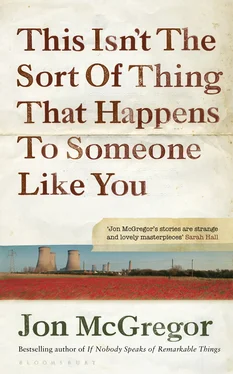
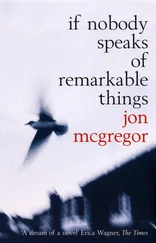


![Нил Уолш - Единственное, Что Имеет Значение [The Only Thing That Matters]](/books/393630/nil-uolsh-edinstvennoe-chto-imeet-znachenie-the-onl-thumb.webp)
